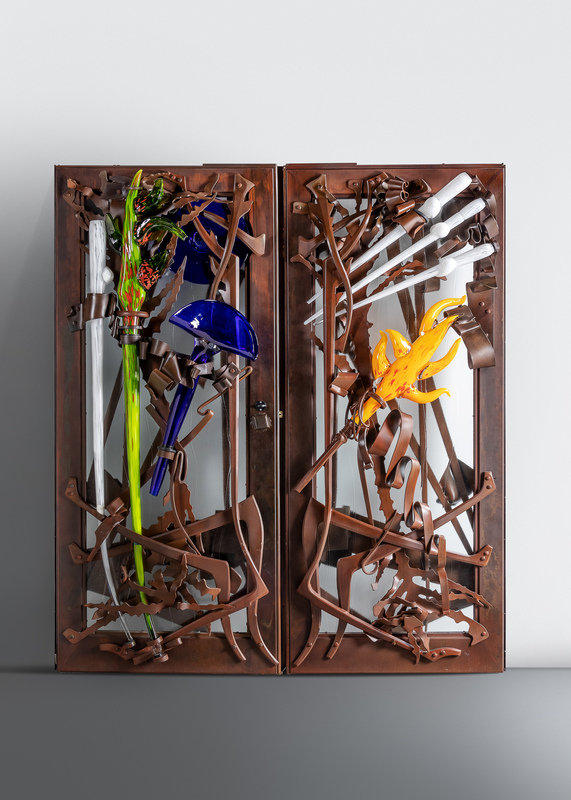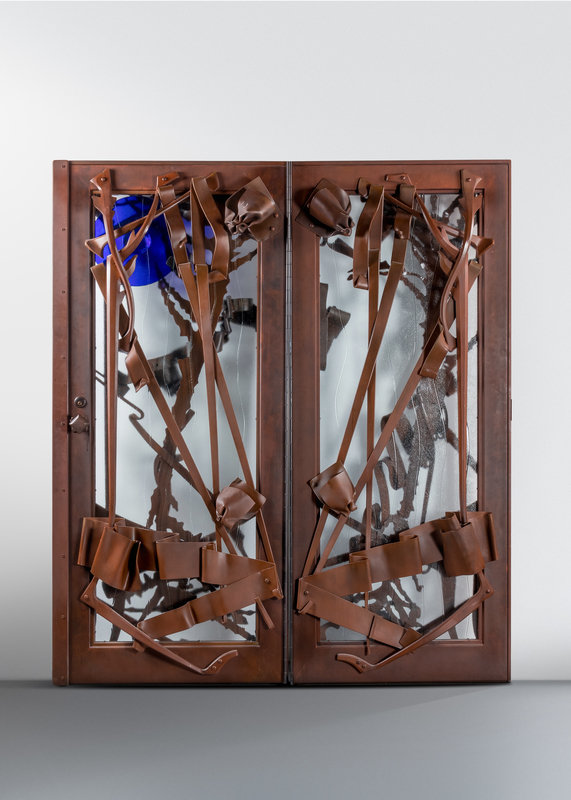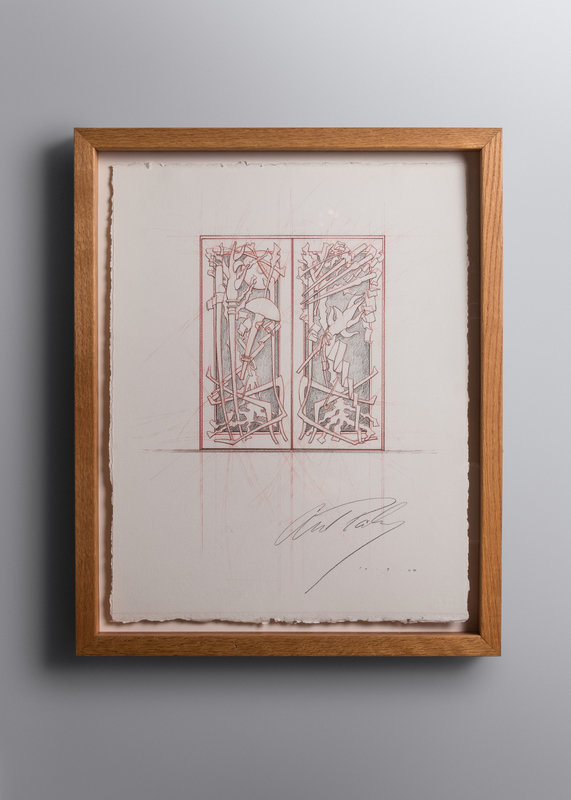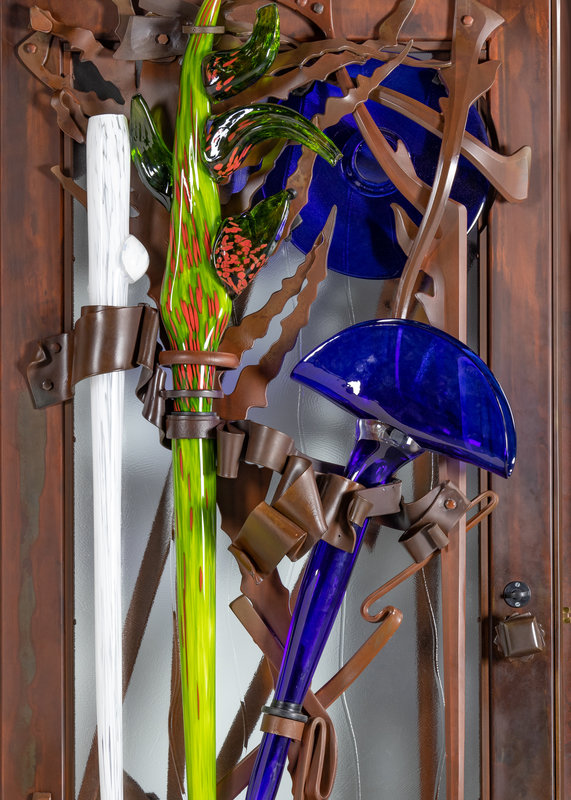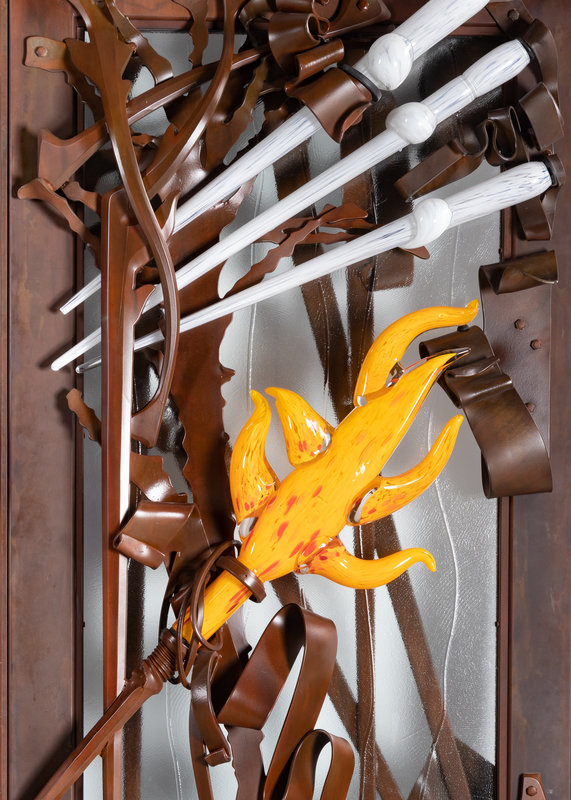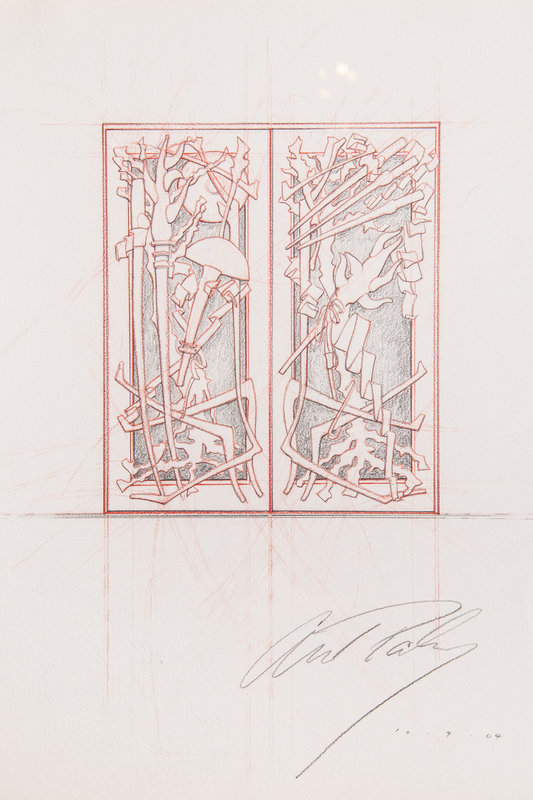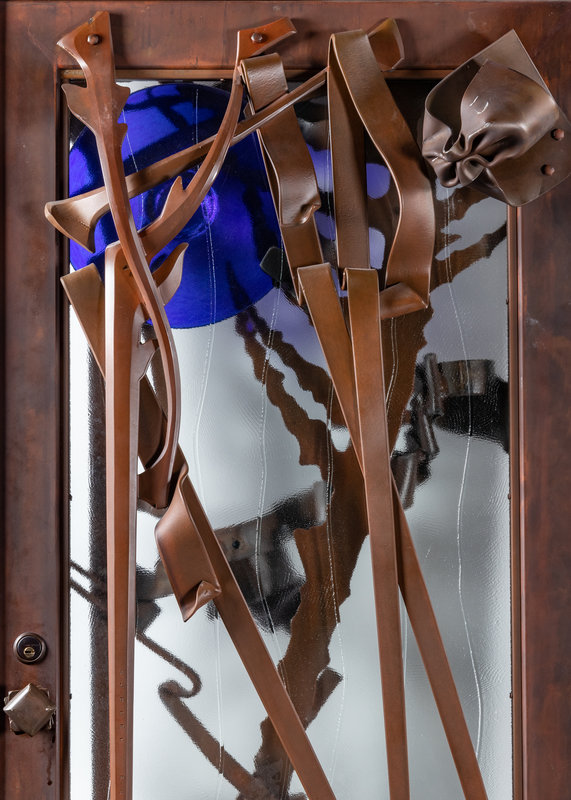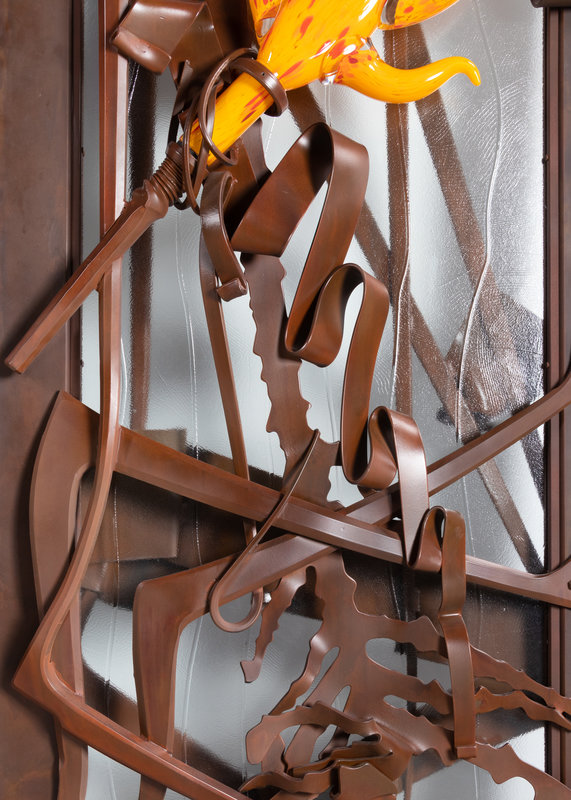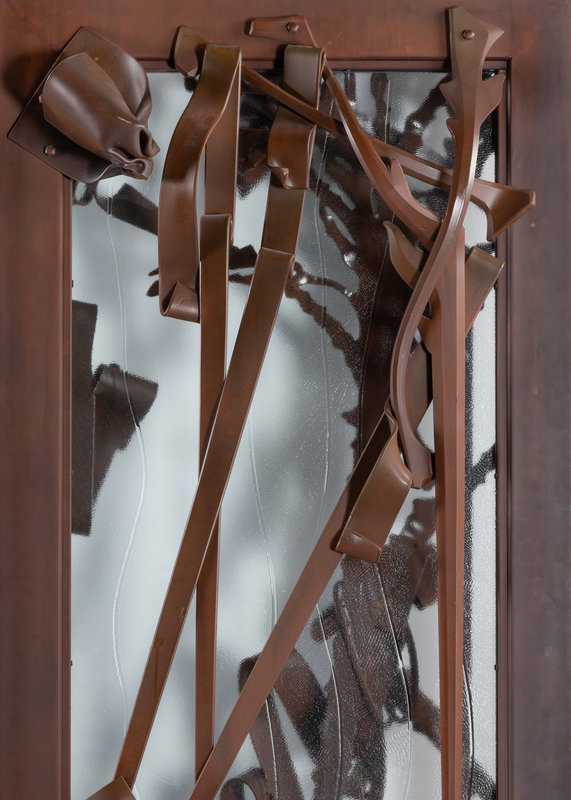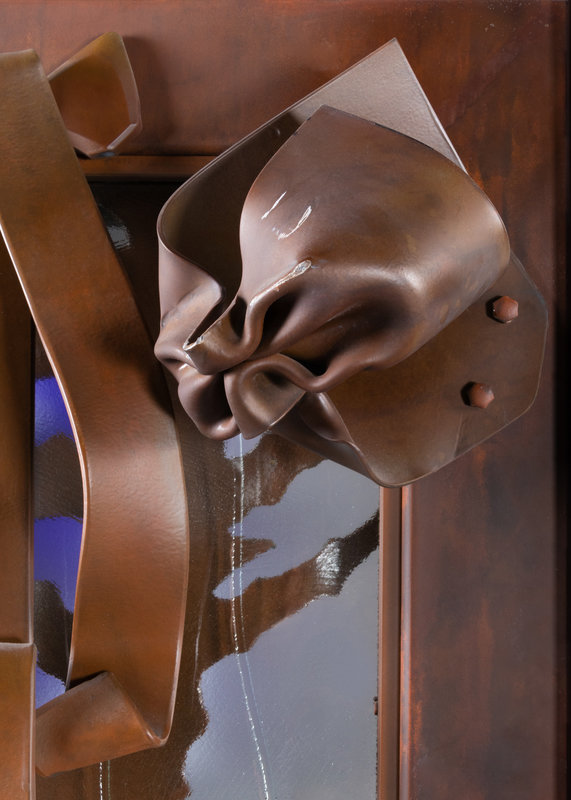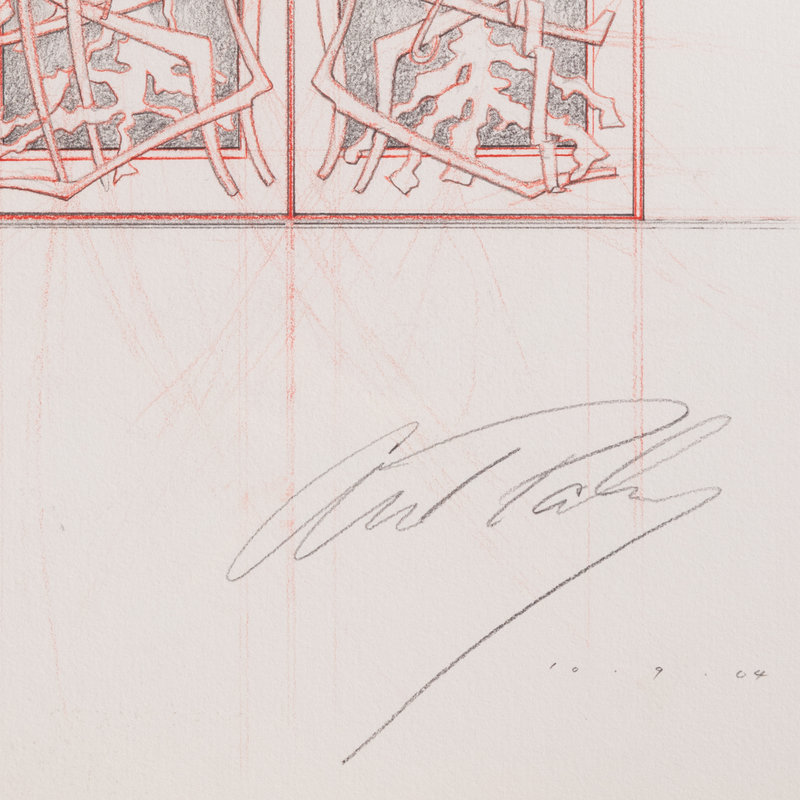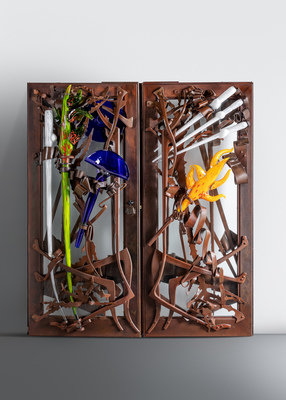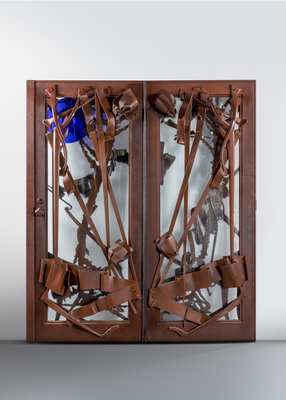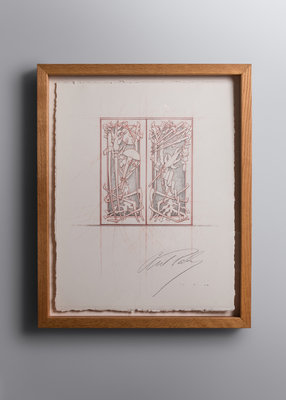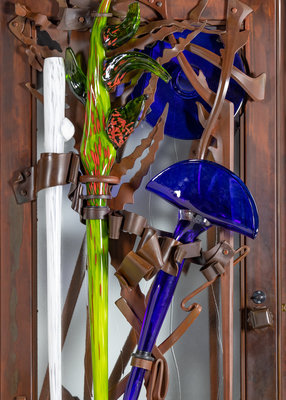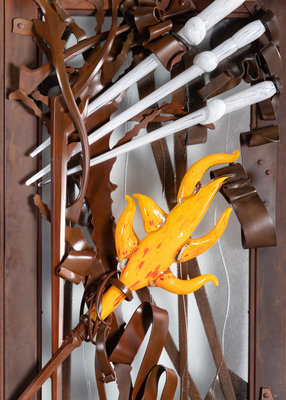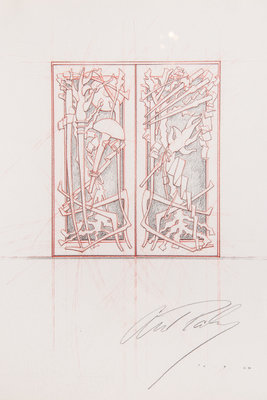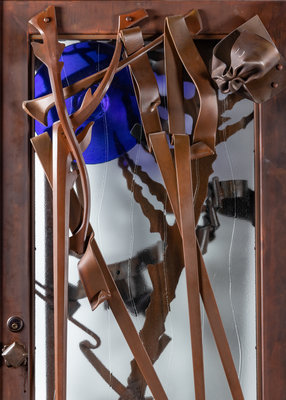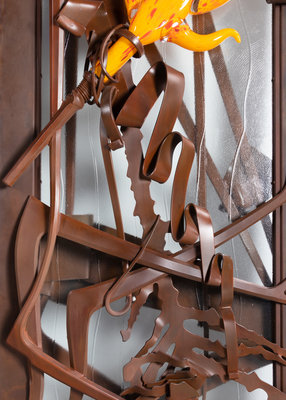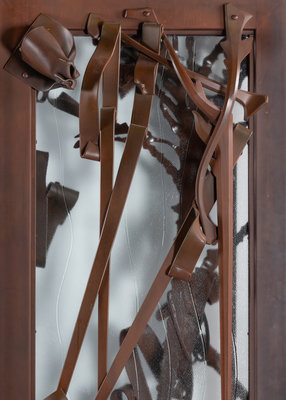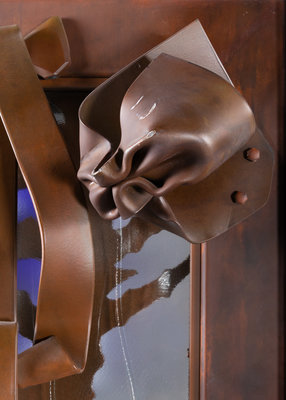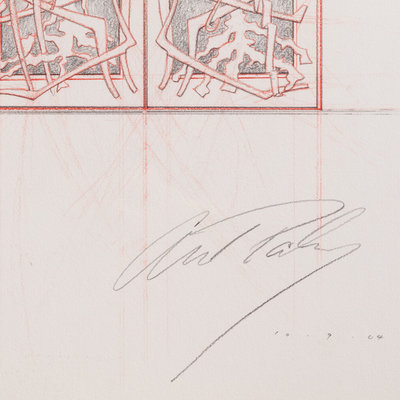Albert Paley
(b. 1944)
Important Entrance Doors, 2004
glass elements executed by Martin Blank
glass elements executed by Martin Blank
Sale 894 - The Springborn Collection of Contemporary Craft
Mar 23, 2021
10:00AM CT
Live / Chicago
Own a similar item?
Estimate
$30,000 -
50,000
Price Realized
$18,750
Sold prices are inclusive of Buyer’s Premium
Lot Description
Albert Paley
(b. 1944)
Important Entrance Doors, 2004
glass elements executed by Martin Blank
glass elements executed by Martin Blank
formed and fabricated steel, float glass, blown glass
signed ‘ALBERT PALEY 2004’
H 82 x W 72 inches
Property from the Collection of Dr. Robert C. Springborn and Mrs. Carolyn J. Springborn, Naples, Florida
Includes original proposal drawing by the artist
Provenance:
Acquired directly from the artist
Literature:
Naples Museum of Art, Living with Studio Furniture: Collection of Robert and Carolyn Springborn, exh. cat., Naples, 2009, illustrated p. 68
M. Jessica Rowe, Albert Paley | Portals & Gates, Ames, Iowa, 2007, illustrated p. 110, 111
Provenance:
Acquired directly from the artist
Literature:
Naples Museum of Art, Living with Studio Furniture: Collection of Robert and Carolyn Springborn, exh. cat., Naples, 2009, illustrated p. 68
M. Jessica Rowe, Albert Paley | Portals & Gates, Ames, Iowa, 2007, illustrated p. 110, 111
Lot Essay:
Art-curious visitors to the home of Robert and Carolyn Springborn didn’t have long to wait. They were greeted right at the entrance by one of the collection’s most spectacular works: this pair of doors by Albert Paley. This artist will need little introduction as one of the preeminent American sculptors of the last half century. He is also the nation’s leading blacksmith – a craft that nearly died a century ago, with the advent of the automobile (countless smithies closed, or were converted to mechanic shops), but had a dramatic return in America, marked by the founding of the Artist-Blacksmith Association of North America (ABANA) in 1973. Paley, already renowned for his work in jewelry, was the clear artistic leader of this renaissance.
Paley’s great early masterwork was a set of gates, which won a competition for the then-new Renwick Gallery in Washington. The project made his fame, launching his career as an architectural-scale metalworker. The Springborns’ entrance doors, made three decades later, show how he progressed from that early success. The Renwick gates are composed of delicate tendrils, which fling themselves up the center of the composition and then curl away into numerous whorls and squiggles, suggesting that ancient mythological emblem, the Tree of Life. The Springborns’ doors feature a similar concentration in the lower central passage, but there the resemblance ends: the composition is disjunctive rather than sinuous, with something of the jagged, explosive vocabulary seen in Paley’s contemporaneous public sculptures.
The doors are further enlivened by the incorporation of glass elements, made by Paley’s frequent collaborator Martin Blank, an important figure in the circle of Dale Chihuly (who did for glass what Paley did for metal, transposing it several keys upward into a spectacular, baroque sculptural medium). Blank’s polychrome glass introduces a lightness of gesture to the doors, like brushstrokes standing out against an intensely worked backdrop. The effect is gloweringly theatrical, bringing to mind the paintings of Clyfford Still, or, closer to Paley’s heart, the avatars of French Art Nouveau, such as Hector Guimard. Such comparisons aside, the doors show Paley himself operating at the height of his powers. With a true sense of dramatic occasion, the portal promises marvels that might lie beyond – that was certainly the case at the Springborn residence – while also constituting a wonder in its own right.
-Glenn Adamson
Condition Report
Contact Information
